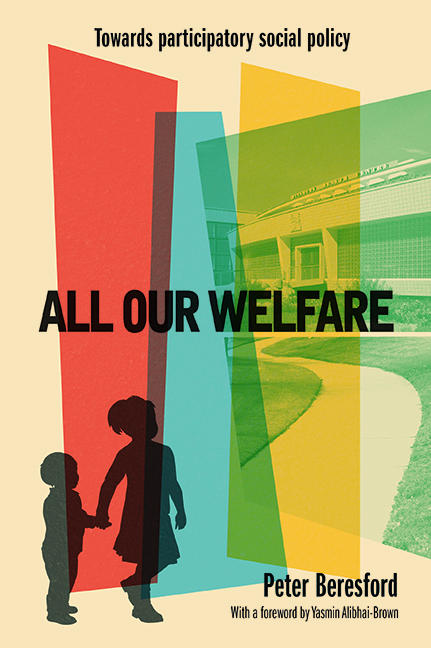Book contents
- Frontmatter
- Contents
- List of photographs and sources
- Foreword
- Dedication
- Acknowledgements
- Introduction Owning not othering our welfare
- Part One The legacy of the past
- Part Two The way to the future
- Afterword The future: a different way forward?
- Appendix One The family
- Appendix Two Research projects and related publications
- References
- Index
Seven - Back to the past
Published online by Cambridge University Press: 01 September 2022
- Frontmatter
- Contents
- List of photographs and sources
- Foreword
- Dedication
- Acknowledgements
- Introduction Owning not othering our welfare
- Part One The legacy of the past
- Part Two The way to the future
- Afterword The future: a different way forward?
- Appendix One The family
- Appendix Two Research projects and related publications
- References
- Index
Summary
And, you know, there is no such thing as society. There are individual men and women, and there are families.
(Margaret Thatcher)We must absorb your curious customs. Drive on the left, politics on the right. Animals in the home, children safely in boarding school. Hate privilege, suck up to the privileged. Love money, despise the rich.
(Russian spy school leader referring to British culture and tradition, in Danger Man: Colony Three, 1964, directed by Don Chaffee)Blair once said that if he did not leave behind a fairer Britain, he had failed. He failed.
(Toynbee and Walker, 2010, 96)It is worth noting that UK national politics since 1979 have been strongly signalled in terms of their departure from the past. Thus Mrs Thatcher was associated with a grouping which was defined as new, the political new Right. The Labour government that followed the years of Thatcherism first under Mrs Thatcher and then Mr Major determinedly rebadged itself as New Labour, pursuing a new third way (‘not state, not market’), committed to ‘modernisation’ (strange perhaps in a self-consciously post-modern age). The Conservative/LibDem coalition in power between 2010 and 2015 presented its policies as an innovative meld of those of its two constituent parties. Interestingly in his acceptance speech as Prime Minister of a majority Conservative government in 2015, David Cameron broke with this tradition, stressing his commitment to old style ‘one nation’ Toryism. Yet he promised in his manifesto what the Institute for Fiscal Studies described as the deepest cuts in welfare and the state for 80 years (Emmerson, 2015). Writing in 1985, Peter Taylor-Gooby explored two competing analyses of the Thatcher welfare reforms (Taylor-Gooby, 1985). One understood them as revolutionary, the other as an incremental extension of previous Conservative thinking. Whichever we accept, both acknowledge the ground-breaking nature of Thatcher’s policies and plans for welfare, either pushing further than before, or in a different direction.
There is no question that for those, like me, who grew up under the welfare state, Mrs Thatcher’s policies and those of her successors, have felt like a break with the past. The talk has constantly been of ending old shibboleths, ‘breaking out of the box’, challenging ‘sacred cows’ and questioning old assumptions. There has truly been radical change in the UK. Specifically there has been a constant questioning of the ‘welfare state’. Our economic base has fundamentally altered.
- Type
- Chapter
- Information
- All our WelfareTowards Participatory Social Policy, pp. 119 - 140Publisher: Bristol University PressPrint publication year: 2016

